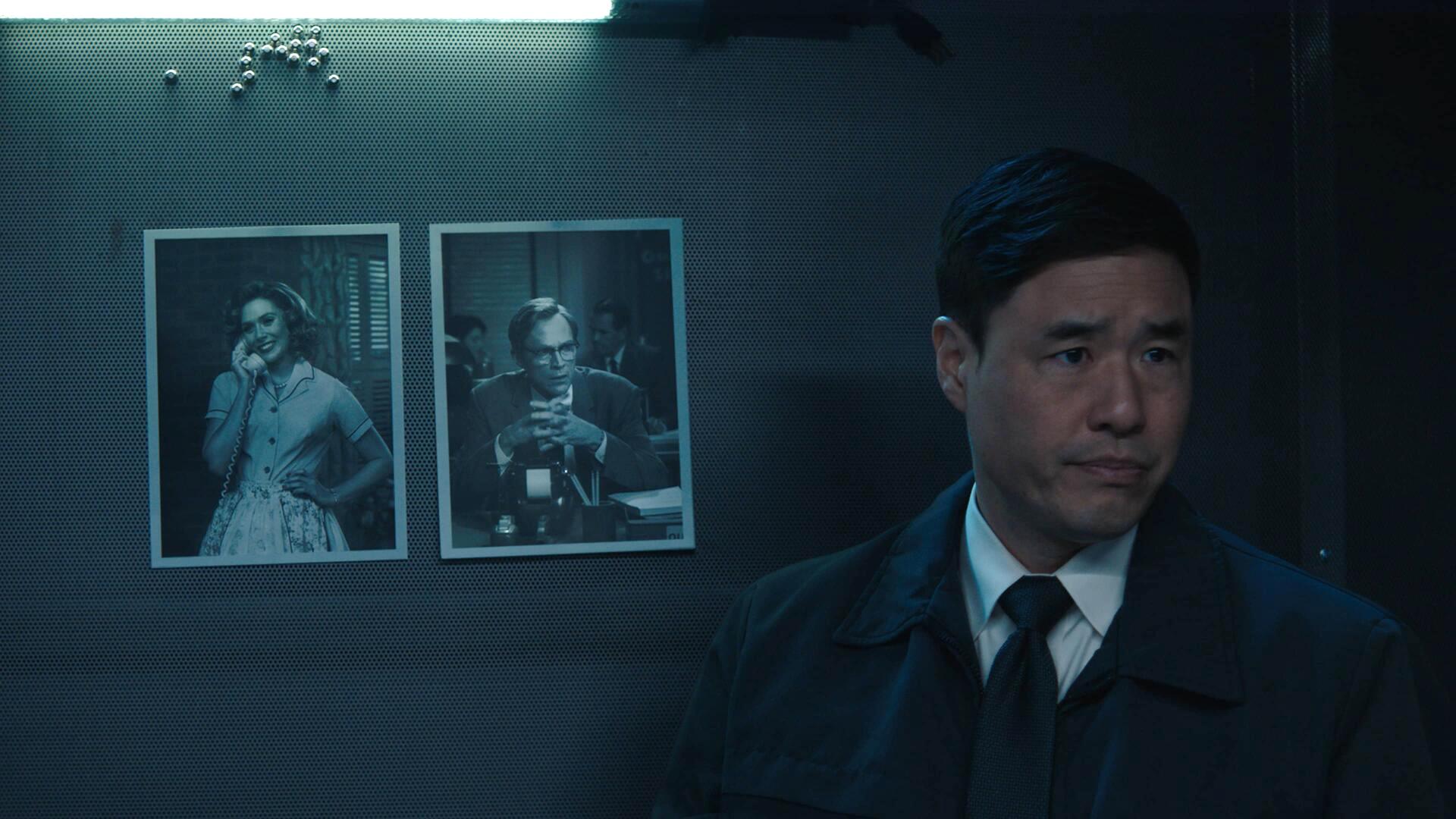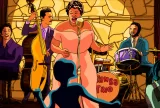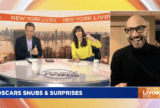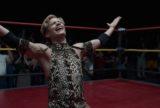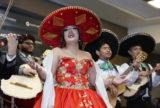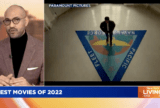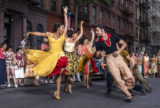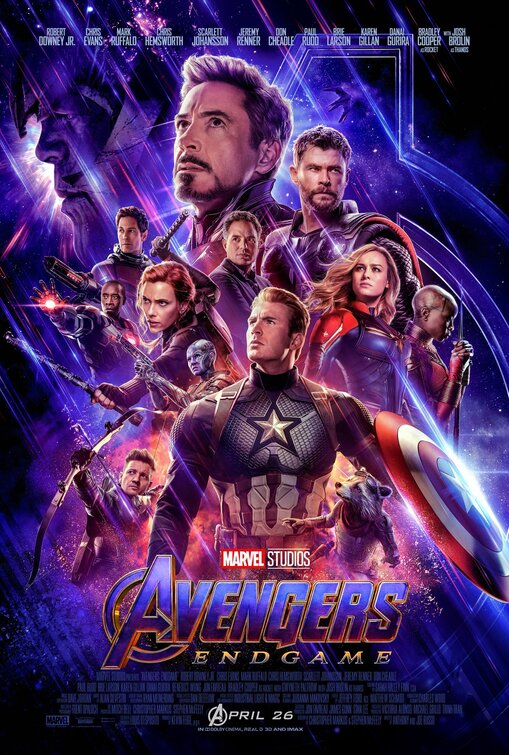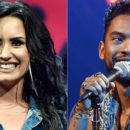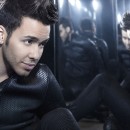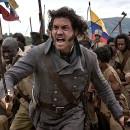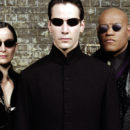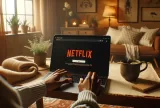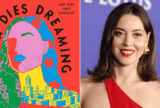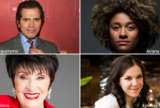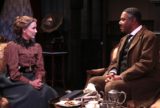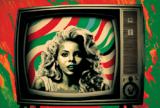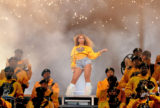News Headlines
The Top 3 Latino Films of 2023
01.5.2024My Top Films of 2022 on PIX 11 News
12.20.2022West Side Story (Movie Review)
12.2.202102.20.2021 | By Jack Rico |
This week on the ‘Brown & Black’ podcast, We talk to Actor Randall Park on Hollywood and America. At a crucial time when Asian hate crimes are on the rise, a Black man, a Latino man, and an Asian man get together for a candid conversation on race, image representation, and the state of the Hollywood industry right now. We also get Park’s thoughts on ‘Minari’ and how he sees the American Dream today. We tackle the past and present of Asian representation in Hollywood and his place in it, plus his thoughts on why “packaging” is the reason Latinos aren’t catching a break with movie studios.
Because we think you’ll enjoy this timely conversation, we’ve made the interview available here in print, via podcast, and on YouTube below. If you would like to support us, please feel free to subscribe, like, and leave a review.
Randall Park on Representation in Hollywood
Mike Sargent (MS): It’s been a banner year for Asian Americans and diversity on film and television Minari is probably one of the best films of the year. To see an actor as you get to, you’ve done so many great roles, so much fun, I’m just curious what your sensibility about the industry was going in and how do you feel being where you are now?
Randall Park (RP): When I was a kid watching these sitcoms it didn’t even really occur to me that there weren’t Asians in it. I was just enjoying them, watching them, and just not thinking about that. I wasn’t conscious of that really. When I got to college is when I discovered acting and writing, and that’s where the seed was planted, that this is what I wanted to do, but I, I really felt like. I’m coming from theater that I wasn’t going to make a living in film and television because the opportunities just weren’t there. But it was something that I could probably do for fun. Maybe get by on it, but really I’d have to do other things on top of it. And I was happy to do that because I just loved performing and writing. And I loved comedy so much that, that it was kind of like this thing where I was like, okay, I’m not going to be, I’m not gonna be rich.
I’m not gonna be, you know famous or any of these things, but I’m totally fine with that because I just love performing. And I had made peace with that. And even well into my acting career, it started to shift a little bit. I just wanted to be a working actor, that’s all I wanted to do. Just get by if commercials were it, I’d make a living, just doing commercials and I’d be happy doing that. And, and that was for a good part of my career. That was the mind state. And then things started opening up. I credit folks like Pat Morita, everybody just doing their part in, breaking ground.
-

ABC’s ‘Fresh Off The Boat’
The Breakthrough of ‘Fresh Off the Boat’
Next thing I knew I was on a show and I did not expect that pilot to get picked up to series. I just did it. It just like was inconceivable to me. I felt like it was a gesture towards diversity, you know? And that’s all it was. And as we were making the show, I was like, this is good, but there’s no way they’re going to pick it up. No way. none of us are famous on the show. We’re all Asian, it just can’t be done. It just can’t be done in this industry. I knew enough about the industry at that point. Aside from Margaret Cho all-American girl, 20 years before for once we can have a nice family meal without you and your mother. After hearing the trials and tribulations of that show, you know, it made me think, “Oh, I remember being in college, watching that show and after getting canceled, I was like, well, that was our chance. It’s not going to happen again. And it didn’t happen again for 20 years, you know? But I had heard especially once I started acting, I had heard of attempts at shows in development. They were trying to make these shows and they would never see the light of day.
And then I figured that we were just another one of those. Even though I was like, Oh man, this is, this is really special. And we barely got through, like, I forgot what exactly happened, but we kind of squeezed through the cracks just to get on the air, and we had we had a 13-episode first season, and we were a mid-season show. And so I was like, okay, this is incredible. One season. And then we’ll be kicked out the lot. And then somehow we just kept going. It is a testament too, to all the work that’s been done before. But Anna and all the work at that time to make people aware of the importance of showing traditionally underrepresented folks on TV. And that fight still goes on right now. We just came at the right place, the right time and they had the right group of people.
Why There Are No Latino Shows on Broadcast TV
Jack Rico (JR): As I listening to you, I’m replacing the word Asians with Latinos. Currently, there are no Latino shows on broadcast networks. The last one was “One Day At A Time,” on CBS and then it was canceled. Grand Hotel on ABC, same thing. We don’t exist. So imagine how we feel by not seeing ourselves represented yet we’re still 20% of the population. 60 million Hispanics live in the United States don’t see themselves represented. Why do you think Latino stories aren’t being greenlit on TV? How come no one wants to bet on Latino storytelling today?
RP: That’s a good question. Here’s one thing that I’ve learned, especially since we’ve started this production company, and our mandate and our company is to tell stories from an Asian American perspective. So we’re trying to create these shows and these projects with Asian Americans in it. And one of the challenges that we have in this industry – it’s all about packaging. They don’t even care about the idea, I mean, the idea is important, but what really gets a show greenlit, is the package, what stars do you bring to that package? Along with that idea, what famous director do you attach? And because we traditionally have not gotten the opportunities to have a number of great directors that we could bring on as an attachment, the number of stars that are “meaningful” to the industry to attach that where the heads of studios will be like, yes, yes, we need that, and I found that the stars in our community, like the legends in our community, they don’t even know who they are sometimes. And I’m like… that person’s a God to us. You don’t even know who that person is? And I feel that that’s one element as to why.
I think we haven’t seen a Latinx show because there’s a history of just not giving people an opportunity to get to a level where you could attach them to a show and that’s it. It’s complex, but opportunity begets opportunity, and when you didn’t have the opportunity to begin with, how can you get to a place where you are? It’s absurd. One Day At A Time… only one show and a community has so many perspectives. No community is a monolith, but if you look on TV, you would think it’s a monolith because that one show has to represent everyone.
Comedic Actors Transitioning to Drama
MS: I’ve always felt that comedy in many ways for an actor, is like a secret weapon. If you can do drama, it’s great, but if you can do comedy, you’ll be working forever. Why do you think it’s easier for a comedic actor to make the transition to doing drama, but it’s not so easy for that dramatic actor to be funny?
RP: That’s real interesting. I don’t know, to be honest with you, but I do feel like, especially with standup and with comedy in general, there has to be an element of drama in it in order for the comedy to work. There has to be a when you’re setting up a joke if you’re doing an act out. You have to make it real tight or else the punchline doesn’t hit, you know what I mean? And I think that not all stand-ups or comedic people can do real good drama, but I think a lot of ’em can because it’s kind of innate, it’s an innate part of comedy, I think. And whereas I don’t necessarily feel that dramatic acting always has to be comedic, like comedic acting always has to be dramatic to a degree, you know? I don’t know that’s my theory, but that’s an interesting theory. Yeah, that’s a good, that’s a good thought. The thing to think about.
-
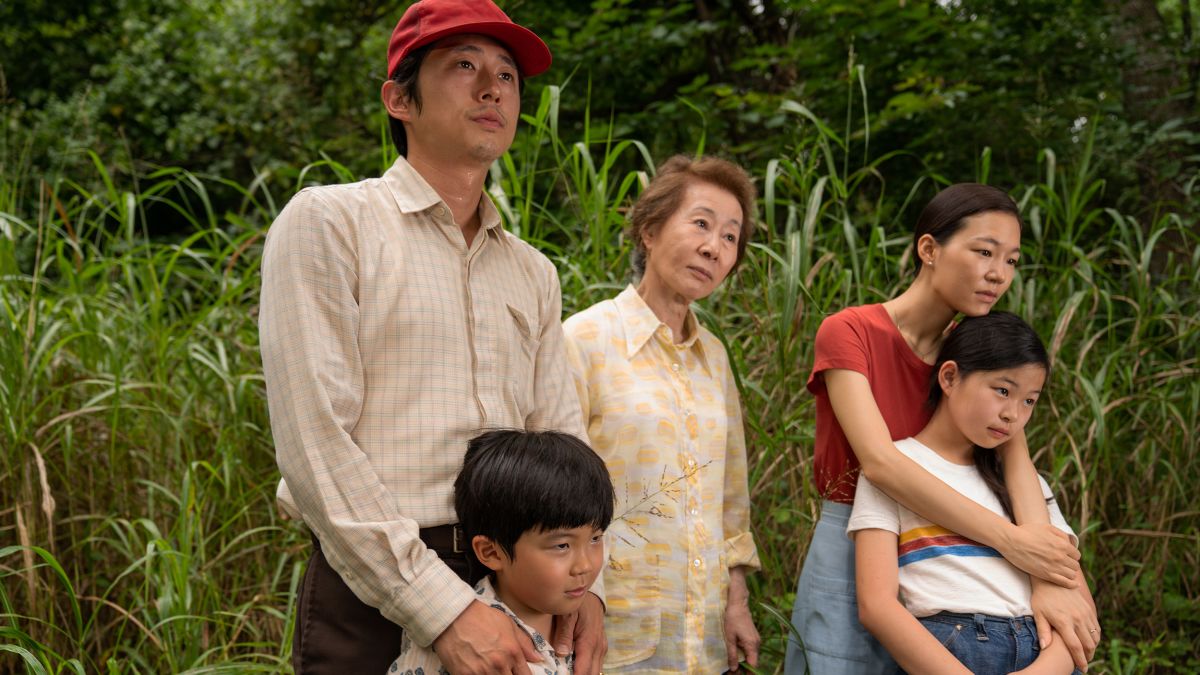
A24’s ‘Minari’
What is the American Dream Today?
JR: ‘Minari’ has been involved in some controversy which has seeped into the industry conversation about whether ‘Minari’ is an American film or a Korean film. To me, it’s a movie that represents the American dream, of the immigrant coming to the United States and becoming an American, but director Lee Isaac Chung has said that was not his intention to tell that story. The director says one thing, and the critics think another… what do you believe is the true American dream today?
RP: Gosh, you guys are asking great questions and deep questions. I think the American dream is a lot of things to a lot of different people and it’s the freedom to be yourself, to be you, to not necessarily have to fit into any kind of boxes that people try to put you in, because that’s not necessarily who you are, or that’s a part of you, but that’s a small, small part of you, there’s so much more.
Dispelling the Model Minority Myth in Asian Stories
MS: You mentioned before, “No culture is a model culture.” To most people, they don’t know the difference between Korean, Japanese, and Chinese. It’s just all Asian to them. What are your thoughts on that? What do you think about the kind of stories you can tell?
RP: Yeah. I grew up around Koreans that are so different from one another. And in my head, it’s just in and of itself, just the diverse group, you know? But in terms of the production company, like my instinct is to tell truthful stories, honest stories, preferably comedic because I just love comedy, but to represent the gamut of experiences in telling these stories, as opposed to the ones that people know, like, Crazy Rich Asians comes out, becomes a hit, the next pilot season. Every show about Asian people, like, Bling Empires, The House of Hoes, you got all these reality shows about mega-rich Asians, and to me, that’s great. That’s fine.
But it’s also not the entire story, and not only that to me in a way it’s rooted in the model minority myth and it’s kind of like, “Oh, well, why are these people so excited to tell these stories as opposed to like a ‘Minari’ or as opposed to stories that are more true to my upbringing, you know? That’s what we want to do as a production company. We wanna tell not just one side of the story, but to tell stories that reflect myself and other people and we also want to create bridges with other communities and tell stories that, I mean, my upbringing was extremely diverse here in in LA, and you don’t see a lot of that with Asian folks. It’s always like just Asian folks, which I think is great too, and important, but for me, my friends ran the gamut, we were like a Benetton ad.
Growing Up in a Diverse LA Neighborhood
JR: What is your relationship with Brown and Black people in your life? I know that you were part of a band called ‘Ill Again’.
RP: These are like my best friends growing up, you know? And it’s like every race, literally like every race was in that group, but that’s the part of LA I grew up in. Not everybody gets to grow up in a multicultural environment. I’m friends with them today, we’re brothers, it was an idyllic upbringing because we would go to Kevin’s house, have Jamaican food, and then we go to Rob’s house and have Mexican. And it wasn’t a thing, you know? But we were conscious about race and we would talk about it and joke about it, but again, it wasn’t a thing. So yeah, that’s a huge part of who I am. And the things that I value and the things that I love and it was a great upbringing and I shouldn’t even be proud of that cause that’s just what it is, but I am proud of that because you don’t see that a lot, you know?

Marvel’s ‘WandaVision’
Thoughts on Marvel and Representation
MS: Being part of Marvel’s ‘WandaVision,’ something that so many people will see, I want to know your thoughts on superhero movies, because I feel science fiction and comedy have something in common and they both are talking about the human condition. I think every comedian is in many ways, a cultural critic. What are your thoughts on being part of something so big and so popular?
RP: I mean, I love it. I mean just as a Marvel fan and I’m not just saying this cause I’m in the projects. I’m saying this because I genuinely love, love, love, love the projects that come out of Marvel. I don’t know the business well enough to know if this is true, but I feel like Marvel seems to be the most intentional about getting different faces on the screen, and I feel like because everyone seems to love Marvel movies and now the TV shows that.
It’s important for kids to see that, and some kids, they don’t have the upbringing that I had. But they’ll be able to see the shows and, and see folks who don’t look like anyone around them or themselves and to love these characters. I don’t think that’s the be all to end all, but I do think that’s an important service for these people who may not have the same diverse surroundings I did. To see the fan engagement, just fans are so into it, it’s just ridiculous.
The Future of Theaters vs. Streaming
JR: I wanted to ask you one last question. The vaccine is almost here, which means that movie theaters might reopen again, but the streaming services look like they’re here to stay. As an actor, you might not be able to see your movies on the big screen exclusively. You might start seeing them only at home. How do you feel about this new hybrid business between streaming and theaters? Are they going to become a luxury experience? How do you see this new transformation in media and entertainment colliding together in 2021 and onward?
RP: For me personally, I don’t care, man. I just want to work, that’s that immigrant mentality. I feel like this was all inevitable, right? This is was all bound to happen. I don’t think theaters are going to die completely. I’m sure there’s going to be movie theaters, but I do think that watching from home was inevitable. It’s not going to go backward, you know?
MS: Well Randall, thank you so much for being on the ‘Brown and Black’ podcast. We appreciate you giving us some candid answers. We wish you the best.
RP: Thank you so much. It was a pleasure talking to you guys, and I’m going to invite myself back one day. It was a joy talking to you guys.
Marvel’s ‘WandaVision’ is available exclusively on Disney+.

